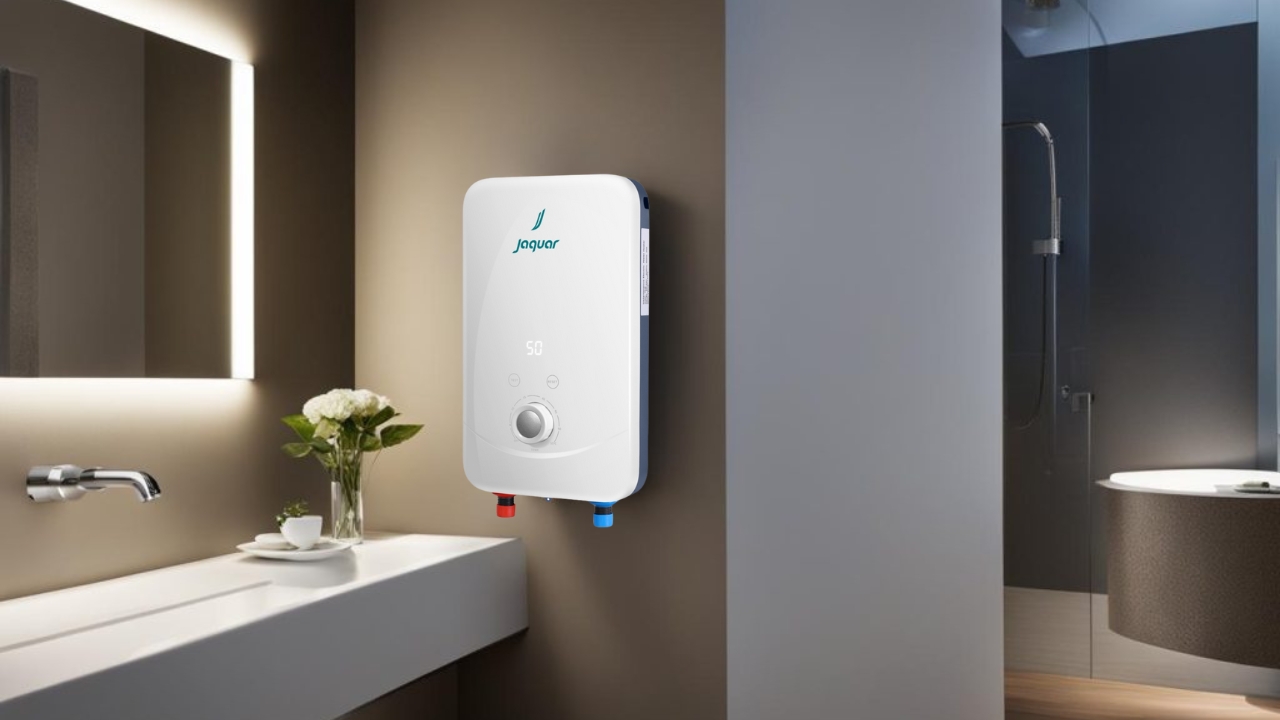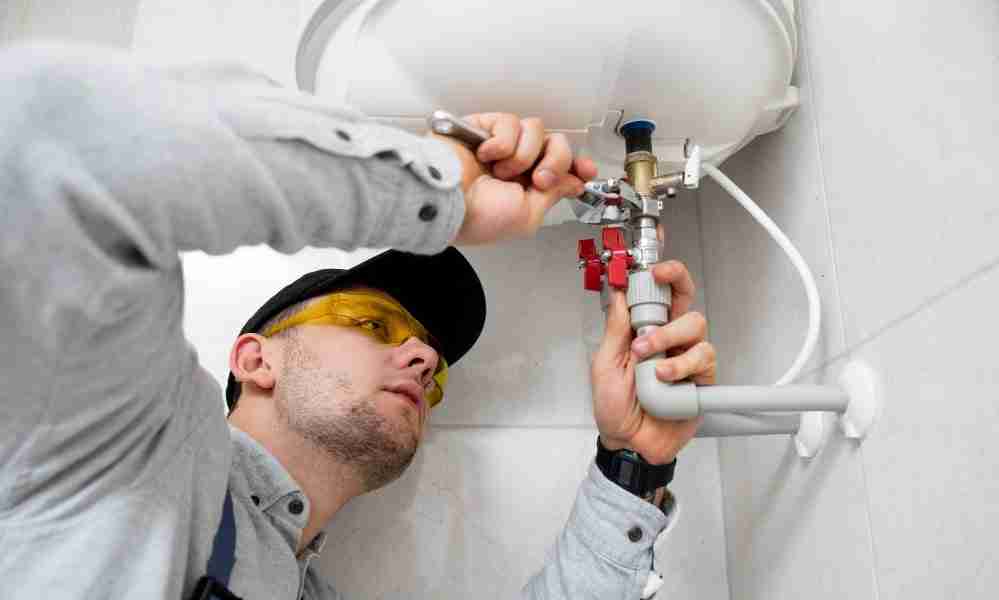Key Causes Why Tankless Water Heaters Are Beneficial
Key Causes Why Tankless Water Heaters Are Beneficial
Blog Article
Just about everyone will have their own perception involving Six Benefits of a Tankless Hot Water Heater.

In a globe where benefit and efficiency preponderate, it's not a surprise that property owners are regularly in search of smarter methods to handle their home's energy consumption and comfort. One advancement that has actually progressively gained popularity is the tankless hot water heater. But just what makes these systems stick out from the conventional tank-based versions the majority of us grew up with? Allow's dive in and check out the advantages of tankless water heaters, assisting you decide if it's time to make the button in your house.
Introduction
Image this: you enter the shower after a lengthy day, expecting a comforting waterfall of warm water, only to be welcomed by icy beads because the last person used all of it up. Audio acquainted? Typical water heaters save a set quantity of warm water, implying you're at the mercy of that tank's supply. Tankless systems, on the other hand, warmth water on demand. Say goodbye to running out mid-shower, no more fumbling with schedules just to ensure warm water is available.
Comprehending Tankless Hot Water Heater
What Are Tankless Water Heaters?
Tankless hot water heater, in some cases called on-demand or instant water heaters, supply hot water just as it's needed. Instead of storing gallons of pre-heated water, these units kick into action the moment you switch on the tap. Water travels through a warm exchanger, warming up in real-time, indicating you get an uninterrupted circulation of warm water without the need for a huge storage tank sitting idly by.
Exactly how Do They Vary from Traditional Solutions?
Standard heaters hold a tank of warm water, utilizing power to keep that tank at a constant temperature. Tankless devices eliminate the standing supply, minimizing lost energy and the cumbersome footprint of a huge cyndrical tube. Basically, you're upgrading from a "stockpile" mindset to a "made-to-order" technique.
Usual Sorts Of Tankless Devices
Tankless water heaters normally can be found in two varieties: gas and electrical. Gas designs tend to supply higher flow rates, ideal for larger households, while electrical designs typically offer smaller sized homes and are generally much easier to set up. Furthermore, some systems are designed for point-of-use (serving one fixture) while others can deal with the whole home's warm water needs.
Key Advantages of Tankless Hot Water Heater
1. Endless Warm Water Supply
Ever before had to arrange showers so every person gets their reasonable share of hot water? With tankless, that comes to be a distant memory. As long as the heating system's circulation ability isn't surpassed, you can take back-to-back showers without turning into a popsicle.
2. Power Efficiency and Cost Financial Savings
No more heating a titan tank's well worth of water and maintaining it cozy all the time. Tankless heating systems minimize standby power losses, which can lower energy costs. While the initial cost may be greater, the long-term cost savings commonly warrant the financial investment.
3. Space-Saving Design
If your home is short on storage space, eliminating the large tank liberates beneficial space. Tankless units are compact and can frequently be installed on wall surfaces, tucked away in corners, or installed in tight utility closets without having all to oneself the whole space.
4. Longer Lifespan
A well-kept tankless hot water heater can outlive its tank-based relative. Typical containers could last 10-15 years, while tankless versions can keep chugging along for 20 years or more, making them a solid financial investment in time.
5. Improved Water High Quality
Storing water in a tank can often lead to debris buildup or a slightly "off" preference. With tankless systems, fresh water is heated up on the spot, decreasing the chances of sediment accumulation and possibly supplying cleaner-tasting water.
Factors to consider Prior To Switching
Though the benefits are compelling, it's smart to take into consideration a few aspects prior to completely committing.
Initial Financial Investment Expenses
Tankless heating units usually come with a greater upfront price. Between the unit itself and potential installation alterations, the first price could give you sticker shock. However keep in mind to watch it as a long-lasting investment.
Installation Needs
Relying on your home's infrastructure, you may need additional electrical ability or gas line upgrades. Ensure you understand the installation requirements and talk to a specialist to stay clear of shocks.
Reviewing Your Home's Water Use Patterns
If your household at the same time uses multiple components with high warm water demand, ensure the unit's flow price satisfies your requirements. Understanding your use patterns aids you pick the ideal size and kind of tankless heater.
Maintenance and Care Tips
Tankless systems are relatively low maintenance, yet they aren't set-it-and-forget-it home appliances.
Routine Cleaning and Descaling
Tough water minerals can develop in the warmth exchanger, affecting effectiveness. Routine descaling (usually advised yearly) maintains the unit running at peak performance.
Yearly Specialist Assessments
A yearly checkup from a professional makes sure small issues are captured early. They'll evaluate the device's performance, look for leaks, and help preserve optimal performance.
Ensuring Appropriate Air Flow
For gas designs, correct ventilation is essential to securely expel exhaust gases. Make certain airing vent systems are clean and properly set up to avoid any kind of possible safety threats.
Contrasting Different Brands and Models
Not all tankless hot water heater are produced equivalent.
Looking Into Trustworthy Manufacturers
Search for credible brands with a history of generating quality devices. A trustworthy maker commonly gives far better customer assistance and longer service warranties.
Reviewing Reviews and Customer Comments
User testimonials and comments from neighbors or pals who have gone tankless can use beneficial understandings. Occasionally, real-life experiences can be more informing than advertising and marketing sales brochures.
Setup: DIY or Expert?
While some house owners enjoy tackling tasks themselves, tankless setup might not be the most effective time to break out the toolbox.
Advantages and disadvantages of DIY Setup
A do it yourself mount might save money, however it features risks. Inaccurate installment can result in inadequacy or safety and security problems. If you're handy and have experience, it might be feasible-- yet proceed with caution.
When to Call an Expert Plumber
For many, calling a pro makes sure every little thing's done correctly. A professional plumbing understands local codes, sizing requirements, and venting parameters, decreasing the danger of problems.
Maximizing Efficiency
You've invested in a tankless system-- now maximize its effectiveness.
Optimum Temperature Level Settings
Lots of people establish their systems in between 120-140 F. Readjusting the temperature level can improve convenience and financial savings. Experiment to find a pleasant spot that doesn't waste power.
Pairing with Low-Flow Fixtures
Want to stretch your unit's capacities? Consider installing low-flow showerheads and faucets. They lower water use, allowing your tankless system to deliver a stable stream of hot water without straining.
Environmental Influence
Tankless water heaters straighten with greener living objectives.
Reduced Carbon Impact
By using less power and only home heating water as required, tankless systems can reduce your home's carbon impact, minimizing your environmental effect.
Conserving Natural Resources
Much less energy intake and less lost hot water equate into less natural deposits being used, an ecological win-win.
Who Profits The Majority Of from Tankless Heating systems?
The beauty of tankless heaters is that they can fit a variety of households.
Big Households vs. Solitary Passengers
Huge family members might like the countless warm water supply, while solitary occupants appreciate the energy savings from not heating up a whole storage tank for simply someone's early morning shower.
House Owners with Minimal Space
If your home is short on square footage, shedding the large storage tank frees up room for various other essentials-- or possibly just extra breathing space.
Eco-Conscious Customers
Going tankless aligns with environmentally friendly worths, ensuring you're not losing power or sources.
Future Trends in Tankless Water Heaters
The world of home appliances is ever-evolving, and tankless hot water heater are no exemption.
Smart Home Combination
Visualize readjusting your hot water heater's temperature via an application or obtaining upkeep notifies on your phone. As smart home tech advances, we'll see even more connectivity and ease.
Innovations in Innovation
R&D is continuously improving heat exchangers, making systems extra reliable and resilient. Future versions may be also quieter, more portable, and better matched for differing environments.
Final thought
Choosing a tankless hot water heater is greater than just updating your home's warm water system; it's buying lasting comfort, power effectiveness, and a greener lifestyle. By considering your family's water usage, being mindful of installment needs, and committing to routine upkeep, you can enjoy a stable stream of warm water without the baggage of a bulky tank. As technology advances, you can anticipate even smarter, more efficient tankless solutions that not only make your life simpler but also profit the earth.
Pros and Cons of Tankless Water Heaters
Tankless Water Heater Pros
Saves Energy: Simply put, you re spending less energy to create hot water, so your total carbon footprint goes down, not to mention your bills. Lasts Longer Than Storage Tanks: Storage tank units need to be replaced every 15 years or so. But tankless units? They can last for 30 years before they give out on you. Constant Hot Water: Need to take a shower and don t want the water running cold? Awesome it won t. The water will stay hot the entire time because it creates hot water on demand. Saves You Money: Less water usage equals less money. Beyond that, you re not paying to keep water hot 24/7. Those savings add up quickly. Better for the Environment: Less water waste is better for everyone. It saves you money, but it s also environmentally conscious at the same time. Tankless Water Heater Cons
It Can Take a Minute: Depending on your specific unit and its placement, it can take anywhere from 10 seconds to 2 minutes to fully heat up. Because there s no storage tank, it heats water as you need it. Upfront Purchase Price: While we talked about their longevity, there s sticker shock when you look at brand-new tankless units to install. It pays for itself, but it s still a big chunk of change at first. Has its Limits: If you run multiple appliances at once, such as the dishwasher, washing machine, and maybe you take a shower at the same time, there might not be enough hot water. https://www.airsouthnow.com/blog/water-heater-service/pros-and-cons-of-tankless-water-heaters/

I stumbled upon that piece of writing on Pros and Cons of Tankless Water Heater while doing a search on the web. Sharing is nice. One never knows, you might be helping someone out. Many thanks for your time invested reading it.
Request Free Estimate Report this page